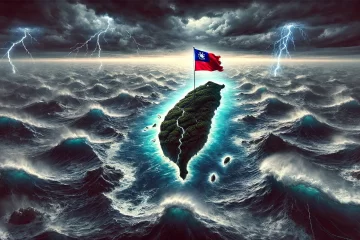A leader’s best friend is a chaotic and unstable world system when domestic troubles are aplenty.
Instead of examining how domestic policies are impacting the health and social structure of a society, it’s usually in the best interest of a president or prime minister to turn the attention of their country to something outside. This policy is known as diversionary foreign policy and there no better implementer of it than Russia.
The woes of Russian infrastructure are many.
The Kremlin expertly distracts its population from growing problems within the Russian borders. From the 2014 annexation of Crimea to the continued military intervention in Syria, international issues become matters of national pride for Russians.
They need the distraction. In the last week of March, 64 people were killed in a deadly shopping mall blaze in Kemerovo, Siberia. Thousands protested throughout the country against the alleged negligence, cost-cutting measures and corruption that led to this and many other fires.
In fact, 10,068 people died as a result of a fire in 2014 in Russia in comparison to the number of 3,275 casualties in the United States during that same year. With a population of nearly twice Russia’s size, the death toll is almost a third lower.
Fire, however, isn’t the only problem. On March 21, 2018, twenty students were hospitalized in Volokolamsk due to the release of toxic gases from a local landfill. An additional fifty-seven children have sought out medical attention due to symptoms. Further, around 200 people living near the landfill have consistently registered complaints of nausea and headaches.
Despite local Russian news agencies covering the situation, nothing appears to have been fixed. Intermittent protests come and go locally – but this problem isn’t a new one. Regardless, a local court has refused to close the dump and garbage continues to flow into the landfill, poisoning the local Russian population.
But on the international front, Russia has more than enough distractions to use.
The prevalence and variety of infrastructure problems within Russia ought to perhaps take center stage. But luckily for Moscow, there are many scandals on an international front. When Russia is referred to as the subject of sanctions and as a state “acting in bad faith,” Western media outlets are feeding fuel to the fire of Russian nationalism; look at the poisoning of Sergei Skripal and his daughter.
As the United Kingdom and the United States along with their allies send home Russian diplomats because of this poisoning, Russia throws its hands up and claims that the accusations are all hearsay. The Kremlin has stated that without clear proof that the poison came from Russia, the allegations are baseless.
However, this hasn’t stopped other countries from expelling Russian diplomats. What does Moscow do? It plays the victim card. When other states act against Russia, the Russian government can then turn to the population and say “See, look at how the world treats us, focus your anger on them.”
The Russian state media has similarly used the recent sanctions imposed by the US government on Russia to support an alternative narrative. In particular, these sanctions narrow in on those close to Russian President Vladimir Putin to punish the country for the Skripal poisoning.
What would Moscow have the populace believe? Not only does state-funded media outlet RT claim that the sanctions target ordinary Russians disproportionally, but it also claims the sanctions are retaliatory and a strategy to force Russians to play along to “Washington’s script.”
By refocusing their anger and frustrations on how the world treats Russia, Moscow distracts the population from their problems closer to home. Here’s a hint on how well that strategy is playing: Russian President Vladimir Putin was reelected with 76.7 percent of the vote this year.
About the Author
Gabriella Gricius is a Ph.D. student in Political Science at Colorado State University in Fort Collins, CO focusing on Russian studies, Arctic politics, and critical security theory. She also works with Dr. Wilfred Greaves at the North American and Arctic Defense and Security Network (NAADSN), focusing on human security. She is also fluent in German and Dutch and reads Russian on an intermediate level. She is also a freelance journalist and writes for a variety of online publications including Foreign Policy, Global Security Review, and Riddle Russia, amongst others.



